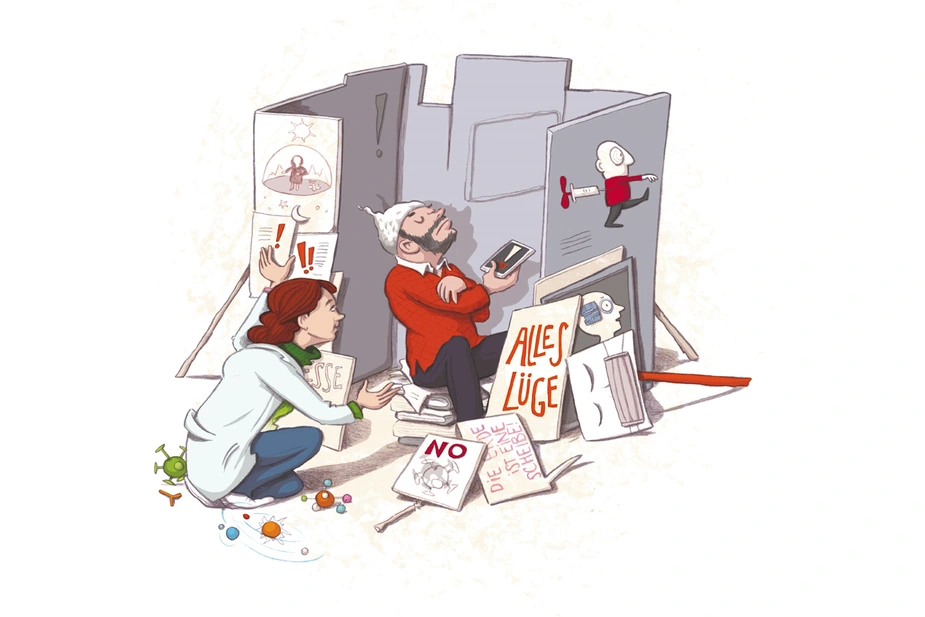“Oh, so you have time to do that?” I do, indeed, and I will now tell you why
Essay by Josef Zens, head of public relations at the GFZ German Research Centre for Geosciences, Helmholtz Centre Potsdam
The whole pandemic thing is tricky. It’s possible that Bill Gates is behind it all. Seeing as he is in control of the World Health Organisation, it would be easy for him to force vaccinations on people around the globe. He wants to implant microchips in everybody. It is also possible that “the Chinese” were experimenting with viruses and that SARS-CoV-2 was leaked from a laboratory in Wuhan. In any case, it’s clear the federal government is using the pandemic to undermine democracy by any means necessary, including compulsory face masks against a perfectly harmless disease, even though children have already died from wearing them.
These are all claims that are peddled on the internet, some of them supported by renowned researchers, and shared by millions. Many of these claims are taken up by the people protesting the coronavirus restrictions on the street.
Is it fair to make fun of this? Should one go to great lengths to debunk all the claims mentioned above and show them for what they are: fake news, false statements, conspiratorial narratives? Indeed, debunking, which basically means taking the nonsense out of something, is important and necessary. However, that is not the end of it. It’s not like these screwy beliefs have only been around since the pandemic. In some circles, the contrails of aeroplanes are called “chemtrails”. They allegedly contain substances to make us compliant and docile. Too wacky? How about using chlorine dioxide (or MMS) against autism? There used to be an “Institute for Transcultural Health Science” at the European University Viadrina Frankfurt (Oder), which made the headlines with outlandish master’s theses on things like the Kozyrev mirror, divination, and contacting the dead.
Those who see this simply as the work of “nutjobs” fail to recognise that it is often the higher educated who believe in such conspiracy theories. Personally, I think that every single on of these people should serve as a stern reminder to researchers and their institutions to engage in responsible science communication. Talk shows and cool science-themed YouTube channels might not be enough. Just as it might not be enough for a charismatic scientist to publicly condemn all this humbug, Nobel Prize or no. The sceptical movement won’t help either. It’s all too late because the beliefs are already entrenched.
School will help. Just as “media literacy” is increasingly taught in schools, they should put “scientific literacy” on the curricula. To be more specific: give training to teachers and show them how research is done today. Send researchers to day-care centres and schools and have them introduce children to the scientific method. And, at the same time, be mindful not to make fun of wondrous beliefs – be they catholic, anthrosophical, or conspiratorial.
But with the coronavirus sprawling, this too won’t help us right now. When gurus and so-called “lateral thinkers” incite hate against science. When researchers are threatened, because they educate the public, and are worn out until they stop engaging in public communication.
The lesson is this: The effectiveness of classic education is limited because beliefs are already too rigid. What is more important, is to take people seriously. Even if they believe in bunk. This means endless debate and creating transparency in science, which must include the whole process of researching, doubting, and validating. Most importantly, the researchers themselves must do this. Instead of being punished by their superiors, they must be rewarded for it: “Oh, so you have time to do that?” Exactly! The answer should be: “Yes, I need more time to do that!”
